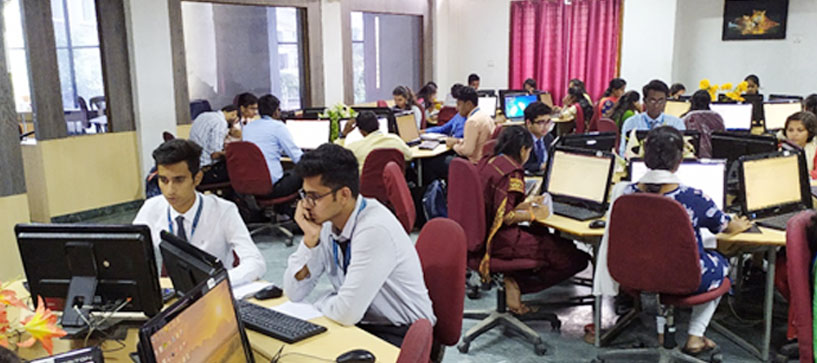
Placement Initiatives @ KJU
The Centre for Employability and Corporate Relations (CECR) at Kristu Jayanti (Deemed to be University) is dedicated to equipping students with the skills, exposure, and opportunities required for a successful professional journey. CECR implements a range of initiatives that ensure holistic development and a seamless transition from academic learning to industry readiness.
1. Industry Partnerships: Forging collaborations with leading corporates, industry experts, and local enterprises to create diverse opportunities for students. These partnerships facilitate internships, guest lectures, live projects, and final placements.
2. Skill Development Workshops: Conducting intensive workshops and training programs to enhance both technical and soft skills. Sessions include communication mastery, aptitude training, resume building, and interview techniques.
3. Networking Events: Organizing job fairs, alumni interactions, and corporate networking events that connect students with potential employers and industry leaders, helping them explore various career pathways.
4. Career Counselling Services: Providing one-on-one career counselling by trained professionals who guide students toward suitable career options, higher education opportunities, and personalized skill development plans.
5. Internship Opportunities: Facilitating internships across diverse domains to help students gain hands-on industry experience and understand workplace dynamics.
6. Professional Development Seminars: Hosting seminars and guest sessions by industry professionals, thought leaders, and distinguished alumni to expose students to current business trends and emerging industry demands.
7. Resume Building Support: Offering personalized assistance through resume-writing workshops and feedback sessions to help students craft professional, impactful resumes and cover letters.
8. Mock Interviews: Conducting mock interviews and group discussion practice sessions to prepare students for recruitment processes. Constructive feedback helps build confidence and refine communication.
9. Online Presence and Communication: Maintaining an active online presence through the university website and social media platforms to share updates on job openings, internship opportunities, and placement highlights.
10. Feedback Mechanism: Implementing a continuous feedback system that allows students to share insights and suggestions, enabling CECR to enhance the quality and effectiveness of placement initiatives.
11. Collaboration with Faculty: Collaborating with faculty members to integrate industry-relevant content into the curriculum, ensuring that students acquire both theoretical and practical knowledge.
12. Data Analysis: Analyzing placement and internship data to identify hiring trends, key recruiters, and emerging career fields, allowing the University to strategically refine its placement support.
13. Post-Placement Support: Offering post-placement guidance and networking opportunities for alumni, fostering long-term engagement and career advancement support.
14. Diversity and Inclusion: Ensuring inclusive placement initiatives that provide equal opportunities to students from varied backgrounds, promoting fairness and representation across all programs.
15. Continuous Learning for the Placement Team: Encouraging the CECR team to participate in training, workshops, and conferences to stay updated on evolving recruitment strategies and global employment trends.












































